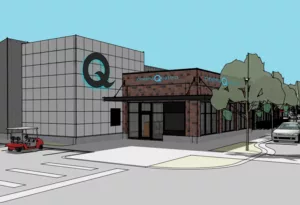
Excellence vs. Perfection: Shifting your leadership mindset
Progress can count as much as outcome in fresh approach

One of the beliefs I adopted early in life was the idea that if you can’t be the best, don’t do it at all.
Being perfect meant I was succeeding. It meant I was worthy of praise, especially from my dad. That belief drove me to study hard, work longer than others, and take on tasks only when I knew I could excel. As a woman in what was often a man’s world, I thought this drive was what allowed me to succeed or compete.
But here’s the part I didn’t see: that same belief was keeping me small. It kept me from trying new things. It made curiosity feel risky. It made vulnerability feel like failure.
The pursuit of perfection became overwhelming—not just for me, but for those around me. My standards weren’t just high. They were impossible. This pursuit of perfection may have gotten me to where I am in life, but it's standing in the way of where I wanted to go. And I was not bringing my naturally feminine leadership traits into the workplace. I was hiding my curiosity and vulnerability because I thought I had to know the answers.
Perfectionism was stalling my progress. If I couldn’t master something, I’d stop trying. If it didn’t feel effortless, I’d take that as a sign to walk away. I was not growing and expanding with new skills; I was only reinforcing my current skills.
So, recently I asked myself: Who defines perfect? Who decides what’s good enough?
It hit me: The standards I was chasing weren’t even mine. They were stories and messages I had absorbed over time about how I should look, speak, perform, or succeed as a female leader.
For example, if I couldn’t contribute to new marketing ideas, I’d convince myself I didn’t need to participate in that side of the business. Or if I didn’t fit into a size 6 dress, I’d feel like I had failed, even if I felt confident and strong in a size 10.
Why was I letting “perfect” be the only measure of progress, effort, or success? Why am I limiting myself based on a lack of perfection?
So What?
Recently, I’ve been shifting from perfection to excellence. And let me tell you, it’s liberating. Excellence isn’t about being flawless. It’s about being the best version of myself—right now, today.
It means contributing with intention, offering value, learning as I go, and knowing that progress counts just as much as the outcome. Excellence is about contributing to my own growth and supporting others in a meaningful and authentic way.
My version of “perfect” was usually far beyond what anyone needed—or even wanted—from me. I was exhausting myself trying to reach 100%, when stopping and sharing at my definition of 80% was already exceeding what was needed to move forward, make progress, or succeed.
Perfection drained the joy out of what I was doing. Excellence gives that joy back.
Here’s what shifting to a mindset of excellence has created for me.
Presence: I can be in the moment instead of fixating on what’s missing or how I could do more.
Curiosity: Without the pressure to get it “right,” I can ask questions, explore, try, fail, and learn.
Learning: Letting go of the need to know everything has opened me up to actually learning new things, instead of fearing what I don’t know.
Contribution: I now share my ideas, my work, my voice—even when it’s not perfect. And guess what? It still resonates. It still helps. It still matters.
Joy: Yes—actual joy. Joy in creating, in doing, in growing. Joy that isn’t waiting for everything to be polished and “done.” Joy that shows up right now. Joy in the journey rather than solely in the outcome.
Now What?
Perfection can keep you stuck, quiet, overwhelmed, or exhausted. Maybe it’s time to ask: What would excellence look like instead? Not perfect. Not flawless. Just the best of you—today. Your voice. Your effort. Your presence. Your impact.
So how do you define excellence for yourself? Redefine your success markers. Ask, if I let go of perfect, what does “success” look like today?
Is it showing up fully to a meeting? Or, is it finishing a task at 80% and sharing it instead of obsessing over tweaks? Or maybe, is it asking a question instead of having all the answers.
Julie Shiflett is the founder of Northwest CFO, a professional coach, and a facilitator for the Whitworth Institute of Leadership. She can be reached at [email protected].




